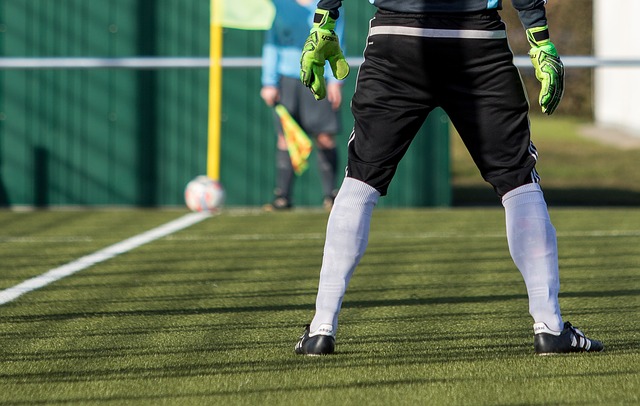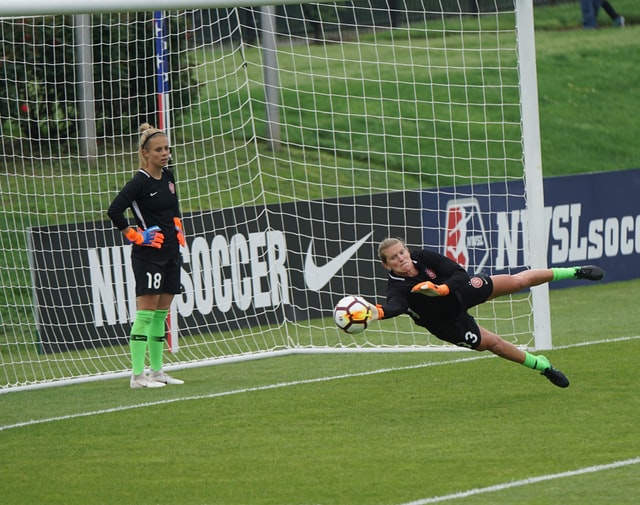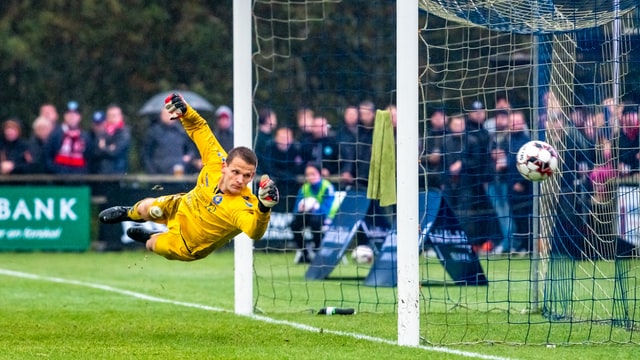Soccer is one of those sports that demand a lot of physical effort from it’s players. As you can very easily tell, goalkeepers will have to retire from their soccer career at an earlier age than the average retirement age in many other disciplines.
Generally speaking, good soccer goalkeepers usually retire somewhere around the age of 37. Some goalkeepers are able to keep playing soccer till the age of 42 while others can’t make it past 35. Goalkeepers can sometimes be hit by an earlier retirement though due to injuries or sickness.
In this article, I will speak from personal experience as I have been watching soccer for more than a decade now. I’ll also bring in some numbers from trusted sites. So, let’s get started.
At what age do goalkeepers leave the big soccer leagues?
A goalkeeper’s main career is when they play for a great soccer league. Many goalkeepers retire immediately after they are old enough to not be able to play in a highly competitive soccer league, while some of them decide to join smaller clubs in less known leagues after their performance decline.

This data source contains the list of the oldest goalkeepers that have made an appearance in some of the most competitive soccer leagues.
If you don’t want to check the data yourself, here’s a quick and nice chunk of this data between the years 2010 and 2020.
| Soccer League | Age Range | Goalkeeper’s count |
| Premier League | Older than 38 | 13 |
| La Liga | Older than 37 | 11 |
| Serie A | Older than 38 | 17 |
What these numbers are saying is that usually not a lot of goalkeepers will be able to keep playing in a very competitive soccer league after they become older than 37. For example, during a span of 10 years, only 11 goalkeepers older than 37 could play at least a match in La Liga.
Even if a goalkeeper was able to keep playing for one of the biggest soccer clubs in the world after they turn 37, they will usually be used as a backup goalkeeper instead of being used as the main goalkeeper. In other words, a younger goalkeeper will replace them and they will remain in the club just to teach the younger goalkeepers and take their place in case of injury.
It is worth noting that this data isn’t about the goalkeeper’s retiring ages. This data is stating the list of the oldest goalkeepers that have played in some of the most competitive soccer leagues.
Many goalkeepers decide to continue their soccer career after their performance declines. They usually join less known soccer clubs and resume their career for a few more years before they decide to call it a day and quit soccer completely.
But in general, many goalkeepers retire in their late 30s because their bodies won’t be able to handle the physical demand that the goalkeeping position in soccer requires.
What factors decide the retirement age of soccer goalkeepers?
1- Performance
The obvious factor that decides a goalkeeper’s retirement age is their performance. As long as a goalkeeper is performing well, they’ll keep their spot in their club. Once the goalkeeper shows any signs of incompetence, their retirement will be around the corner.
The pressure on goalkeepers is even higher than the pressure on players in other positions too.
Unlike other players, a goalkeeper’s one mistake can destroy their whole career and push them to retirement.
For example, if a soccer forward player misses a very easy chance of scoring, then it won’t be the end of the world for them.
However, if a goalkeeper makes a one big mistake during a soccer match, then their team will receive the goal and that will put the goalkeeper in a bad situation after the match ends.
I am assuming that you already know how critical a single goal is in soccer. Unlike many other sports, there aren’t a lot of goals scored in a soccer match and that makes every goal extremely valuable.
A soccer match can end up with only one goal scored during the whole match, and if this goal was caused by a goalkeeper’s mistake, then the goalkeeper will face a lot of consequences. Especially if the match is of great importance.
People usually remember a goalkeeper’s mistake rather than a goalkeeper’s great save, and the reason behind that is obvious. A keeper’s mistake can cause the team to lose the match.

This ESPN article sums up the whole situation. They talk about Loris Karius’ situation with Liverpool. Loris was a great goalkeeper, but a few mistakes during the champions league final destroyed his career.
This type of mistake can force the goalkeeper to retire earlier than they would had they not made the mistake.
2- How famous the goalkeeper is
The fame of a goalkeeper plays a big role in how much their career extends. Usually, iconic goalkeepers retire at an older age than other goalkeepers.
The reason behind that is that many small soccer clubs are interested in signing a well known goalkeeper or a well known player in general, even if the player isn’t as good as they used to be.
But why would these small clubs be interested in signing old famous soccer players?
The answer is simple. Small clubs will make a lot of money out of signing well known players. The club will sell t-shirts with the player’s name on them, they will boost their viewership because people will want to watch the famous soccer goalkeeper/player play, and so on.
Small clubs won’t be able to sign famous goalkeepers in their prime years, but they will be able to do that when these players get older and less useful for their current club.
What this whole thing means is that if a goalkeeper is iconic, he/she will more likely to get a lot of offers after they become old enough to not be able to compete in large leagues. This means that these keepers will get the chance to extend their soccer career and retire older than the rest of the goalkeepers around the world.
3- Injuries
If everything goes alright, then a goalkeeper usually retires in their late 30s, but sometimes goalkeepers are forced to retire much earlier than that. Mainly, they are sometimes forced to retire after a serious injury.
In general, soccer is safe most of the time. However, that doesn’t mean that players are immune to injury. There are a lot of soccer players who suffered from injury, and some of them were forced to retire early.
What makes things worse for goalkeepers is that the goalkeeper position is usually the most dangerous soccer position, and sometimes a goalkeeper gets injured to the point that they are not allowed to play soccer anymore.
After all of what’s said in this article, it is worth noting that many of the points mentioned here apply the same way on other soccer positions too. The retirement age of soccer players in general isn’t high mainly due to the physical shape that the game requires from the players.
With that said, I’ll end the article with a quick summary of everything you have just read.
Usually, a goalkeeper retires in their late 30s. There aren’t many goalkeepers that got the chance to compete in competitive soccer leagues after they hit the 37 years old mark. Some of the factors behind this retirement age include the goalkeeper’s performance, their fame, and their injuries.

